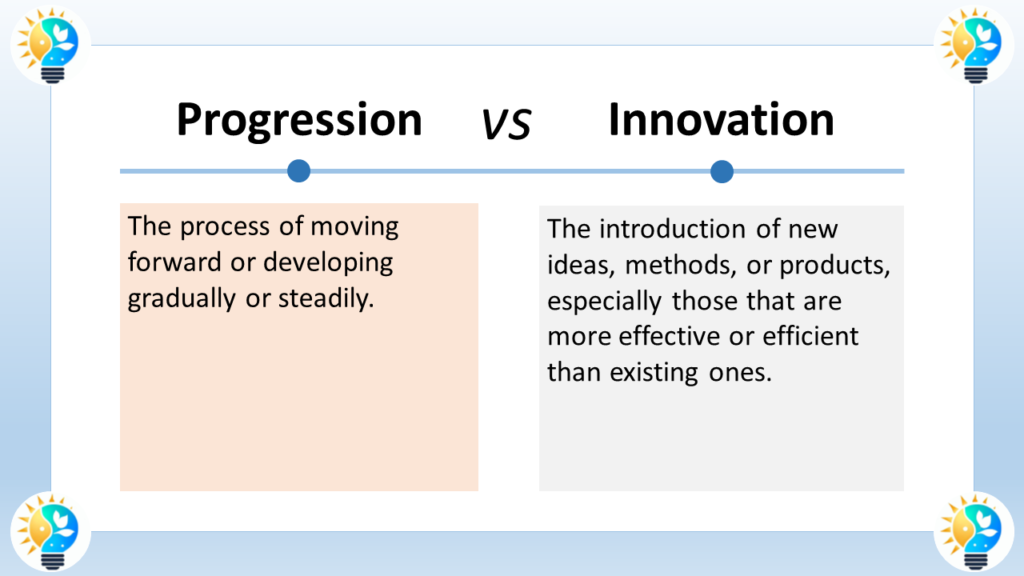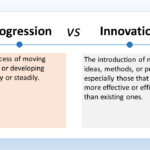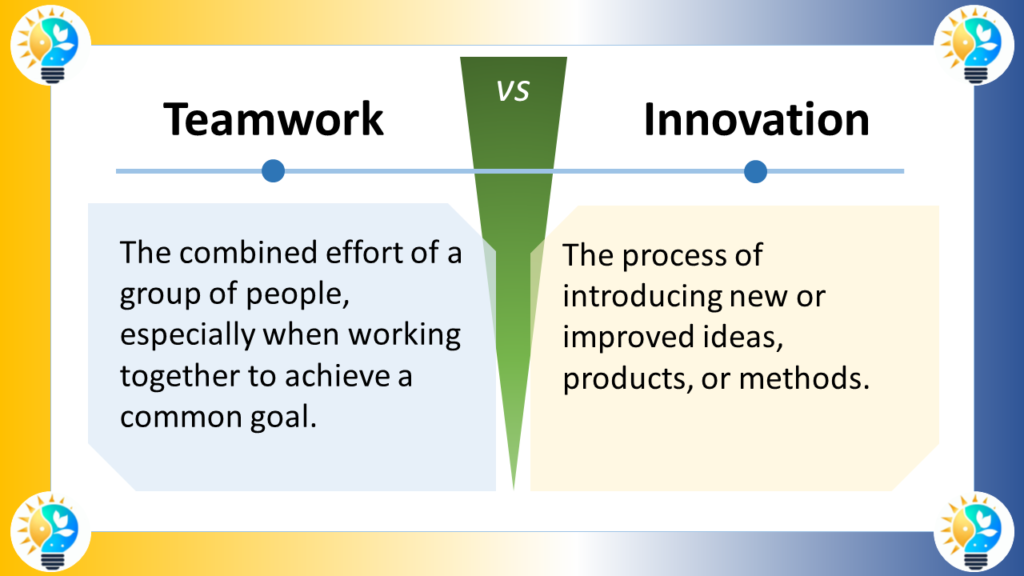
Innovation and progression are two concepts that are often used interchangeably, but they have distinct meanings.
Innovation refers to the process of creating new ideas, products, or methods that add value and improve upon existing ones.
Progression, on the other hand, refers to the forward movement or advancement towards a better state or condition.
While innovation is a means to an end, progression is the end goal.
Definitions
Innovation
Innovation refers to the process of creating new ideas, products, or methods that add value and improve upon existing ones. It involves the application of creative thinking, problem-solving, and design to develop unique solutions that address a specific need or challenge. Innovation can take many forms, including technological advancements, business model innovations, and social innovations. It is a critical driver of economic growth, job creation, and improved quality of life.
Progression
Progression refers to the forward movement or advancement towards a better state or condition. It involves making positive changes that improve the overall well-being of individuals, organizations, or societies. Progression can be measured in various ways, such as economic growth, social development, and environmental sustainability. It is an ongoing process that requires continuous improvement and adaptation to changing circumstances.
More Synonyms on innovation, innovate and innovative
Innovation Terms

Innovation is considered as a driving force in progress.
It includes the introduction of novel ideas, methods, or products that bring positive change and advancement.
For more information about innovations, check our glossary
The Role of Innovation in Progression
Innovation plays a crucial role in driving progression.
It enables organizations and societies to address challenges and capitalize on opportunities. By creating new products, services, and processes, innovation leads to economic growth, job creation, and improved quality of life. Innovation also drives social and cultural progress, leading to new ways of thinking and behaving.
Innovation and Economic Progression
One of the most significant ways in which innovation drives progression is through economic growth. Innovation leads to increased productivity, which in turn leads to higher wages and living standards. According to a study by the McKinsey Global Institute, innovation-led productivity growth accounted for more than half of the economic growth in developed countries between 1950 and 2014.
Innovation also drives job creation. According to a report by the World Intellectual Property Organization (WIPO), innovative firms create more jobs and pay higher wages than non-innovative firms. Moreover, innovation leads to the creation of new industries and markets, which in turn create new job opportunities.
Innovation and Social Progression
In addition to economic growth, innovation also drives social and cultural progress. Innovation enables us to solve complex social and environmental challenges, such as poverty, inequality, and climate change. For instance, innovations in renewable energy and energy efficiency are helping to address climate change by reducing greenhouse gas emissions. Innovations in healthcare are improving access to quality care and reducing health disparities.
Innovation also leads to new forms of social interaction and communication. Social media platforms, for example, have transformed the way we communicate with each other and share information. These platforms have also created new opportunities for political engagement and social activism.
The Importance of Innovation for Businesses
In today's fast-paced and highly competitive business environment, innovation is no longer optional. Companies that fail to innovate risk falling behind their competitors and losing market share. According to a study by Accenture, 93% of executives believe that their companies' long-term success depends on their ability to innovate.
Innovation enables companies to differentiate themselves from their competitors and create new revenue streams. It also enables them to improve their operations and reduce costs. For instance, innovations in supply chain management and logistics are helping companies to reduce their carbon footprint and improve their sustainability performance.
Conclusion
In conclusion, innovation is the driving force of progression. It enables organizations and societies to address challenges, capitalize on opportunities, and improve the quality of life. By driving economic growth, creating new job opportunities, and solving complex social and environmental challenges, innovation contributes to social and cultural progress. For businesses, innovation is essential for remaining competitive and ensuring long-term success. As such, it is important for companies to invest in research and development, foster a culture of innovation, and continuously seek new ways to create value for their customers and stakeholders.
Sources:
- McKinsey Global Institute. (2015). Global growth: Can productivity save the day in an aging world?
- World Intellectual Property Organization. (2019). WIPO Global Innovation Index 2019.
- Harvard Business Review. (2018). The innovation premium.
- Stanford Social Innovation Review. (2019). The role of innovation in social change.


